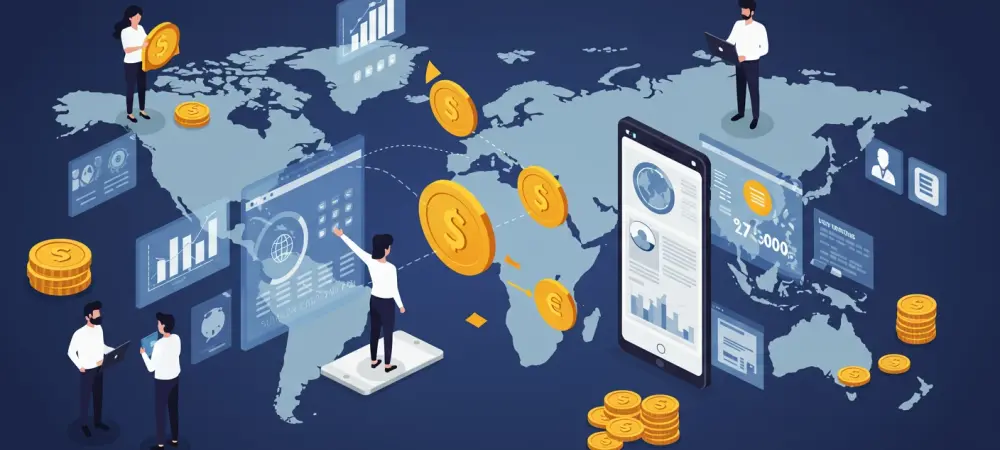Welcome to an exciting conversation about the future of digital payments in Latin America! Today, we’re speaking with a leading expert from Cobre, a trailblazer in financial technology, who has been instrumental in launching Colombia’s first real-time interbank B2B payment platform. With a deep commitment to financial digitalization, Cobre is transforming how businesses handle transactions, making operations smoother and more efficient. In this interview, we’ll explore the groundbreaking aspects of this new platform, its impact on business operations, the broader push for financial modernization in Colombia, and what it means to lead innovation in this space.
Can you tell us about Cobre’s real-time B2B payment platform in Colombia and why it’s such a game-changer for businesses there?
Absolutely. Our platform, Cobre Real-Time B2B Payments Colombia, is the first of its kind in the country to enable instant interbank transactions for businesses. This is a huge deal because it eliminates the delays that traditional payment systems often impose. Businesses can now settle payments immediately, which means faster access to funds and less operational friction. What sets this apart is the secure, scalable infrastructure we’ve built, ensuring that companies of all sizes can rely on it without disrupting their existing processes.
How does this real-time system function for businesses, and what practical benefits does it bring to their daily operations?
The system is designed to be seamless. Businesses can use payment aliases, or keys, to facilitate instant transfers between banks. It’s as simple as sharing a unique identifier instead of cumbersome bank details, and the transaction happens in real time. The impact is significant—payments are processed without delay, which streamlines reconciliation and reduces the administrative burden. Companies don’t need to overhaul their accounting systems to adopt this, so it’s a smooth transition that saves time and resources.
With payments now available 24/7, including weekends and holidays, how do you see this reshaping cash flow management for companies?
This round-the-clock availability is transformative. Businesses no longer have to wait for banking hours to receive funds, which means they can manage cash flow more dynamically. For instance, a retailer can receive payments on a Sunday and immediately allocate funds for inventory on Monday. This speeds up accounting cycles and improves liquidity, allowing companies to respond faster to opportunities or challenges. I believe sectors like retail and logistics, which often deal with tight schedules, will see the most immediate benefits.
Cobre has been a strong advocate for financial digitalization in Colombia. Can you share how your work is contributing to this broader movement?
We’ve been passionate about driving financial digitalization from the start. Our goal is to modernize how money moves in Colombia, making it faster, more accessible, and interoperable. This new platform aligns perfectly with that vision by integrating with the Bre-B framework, which is a national initiative to standardize and accelerate real-time payment systems. By being at the forefront of this, we’re helping businesses adopt cutting-edge tools while supporting the country’s overall financial modernization agenda.
Your CEO mentioned that innovation at Cobre goes beyond just being a buzzword. How does this launch embody that philosophy?
For us, innovation means solving real problems with tangible impact. Launching real-time B2B payments before anyone else in Colombia wasn’t easy—it required months of collaboration with ecosystem partners and navigating complex technical challenges. But we pushed forward because we knew it would benefit our clients and the broader economy. This launch reflects our commitment to delivering solutions that aren’t just trendy but genuinely improve how businesses operate, setting a new standard in the market.
Can you tell us about the early adopters of this platform and how you chose which businesses would get access first?
We’re thrilled to have a diverse group of early users, including major retailers, fintechs, and logistics providers. These businesses were selected based on their readiness to integrate the system and their potential to showcase its impact. Retailers, for instance, handle high volumes of transactions and can immediately benefit from faster settlements. Fintechs bring a tech-savvy perspective, while logistics providers rely on timely payments to keep operations moving. Their feedback will also help us refine the platform as we scale.
Looking ahead, what is your forecast for the future of real-time payments in Colombia and the broader Latin American region?
I’m incredibly optimistic about the trajectory of real-time payments. In Colombia, we’re just at the beginning, and I expect rapid adoption as more businesses see the value of instant transactions. Across Latin America, there’s a growing recognition that digital payment systems are essential for economic growth. We’ll likely see more countries adopting similar frameworks, with interoperability becoming a key focus. At Cobre, we aim to lead this wave, ensuring businesses have the tools they need to thrive in a fully digital financial landscape.

